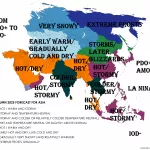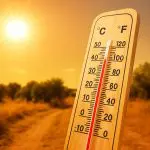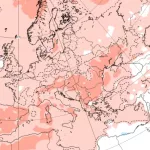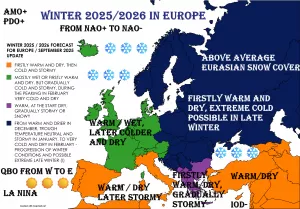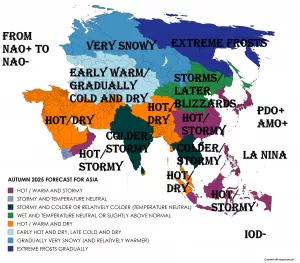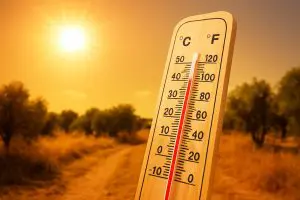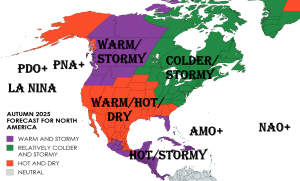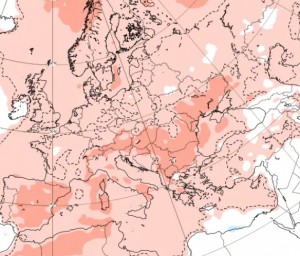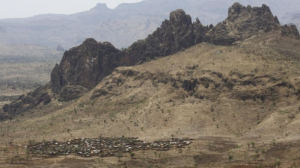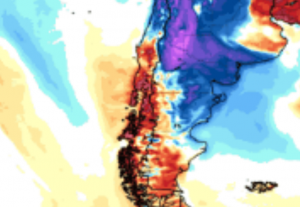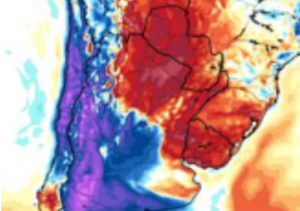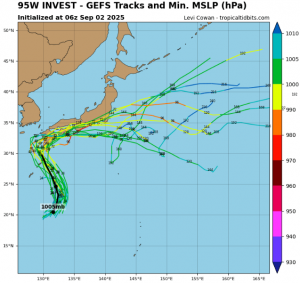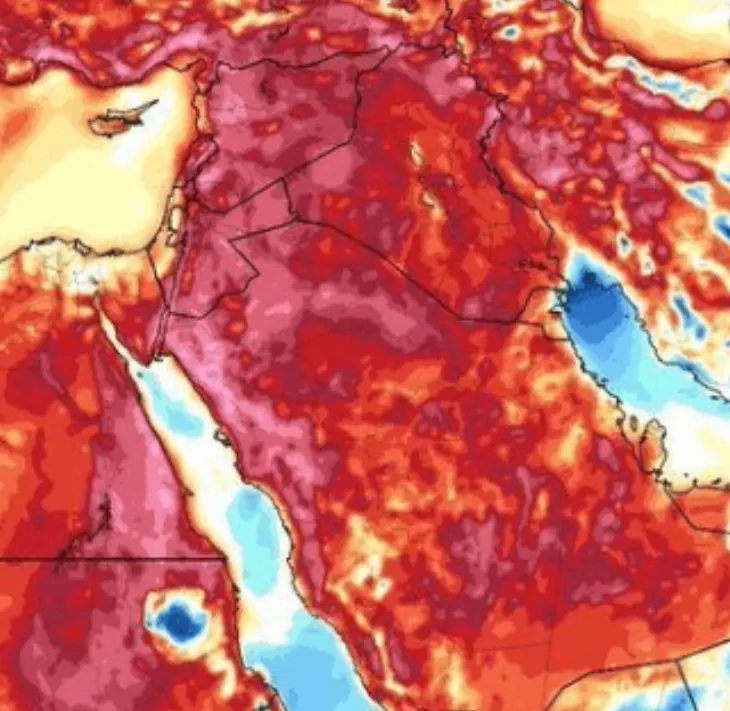
Aqaba, the Red Sea port city of Jordan, recorded an extraordinary +49.6°C, setting a new national record and ranking among the hottest temperatures ever observed in the Middle East and North Africa. The extreme heat comes amid a historic regional heatwave that has scorched Israel, Egypt, and the surrounding desert regions.
Regional Context
This heat is part of a broader pattern of record-breaking highs across the eastern Mediterranean and North Africa in August 2025:
- Israel (Jordan Valley): +51.0°C — the hottest day ever recorded nationally.
- Aswan, Egypt: 48.6°C / 34.3°C night — hottest day and hottest night ever recorded in August.
- Luxor, Egypt: 48.0°C — all-time August record.
- Shalatin, Egypt: 46.7°C — monthly record.
- Sharm el Sheikh: 46.0°C — all-time record tied.
Aqaba’s +49.6°C now ranks just below Israel’s +51.0°C and Aswan’s 48.6°C, positioning the city as one of the hottest locations globally during this extreme heatwave.
Meteorological Overview
The extreme temperature in Aqaba resulted from a combination of factors:
- Persistent high-pressure ridge: A strong subtropical ridge over the eastern Mediterranean and Arabian Peninsula created sinking air, clear skies, and extreme solar heating.
- Desert air advection: Hot, dry air from the Arabian Desert funneled northward into southern Jordan and the Gulf of Aqaba.
- Low humidity: Relative humidity in Aqaba remained below 15%, enhancing the intensity of heat without significant relief from overnight cooling.
Impacts on Society and Environment
The heatwave has had severe consequences for Aqaba and surrounding areas:
- Public health: Emergency services reported increased cases of heatstroke and dehydration, with warnings issued to residents and tourists to stay indoors.
- Infrastructure: Roads softened under intense solar radiation, and electrical grids strained under massive air conditioning demand.
- Tourism and ports: Aqaba’s Red Sea ports and resorts faced operational challenges as outdoor activity and maritime work became hazardous.
- Regional agriculture: Crops and orchards in southern Jordan and northern Saudi Arabia were stressed by prolonged daytime highs and extreme solar radiation.
Significance
Aqaba’s +49.6°C demonstrates that extreme heat is no longer confined to traditional hotspots like the Jordan Valley in Israel or Upper Egypt. The combination of climate change, desertification, and seasonal atmospheric patterns is producing a new era of extreme temperatures in the Middle East.
Meteorologists warn that heat stress will persist for several days, with daytime highs likely remaining above 45°C across southern Jordan and northern Saudi Arabia. Aqaba’s record now serves as a critical benchmark for regional climatology studies, highlighting the vulnerability of desert and coastal communities to unprecedented heat extremes.
Outlook
Authorities have advised continued heat precautions, including limiting outdoor activity, maintaining hydration, and protecting sensitive populations from prolonged exposure. Regional monitoring continues as the heatwave progresses across Israel, Jordan, and Egypt, with potential implications for the eastern Mediterranean and Red Sea corridor.

Detail.


